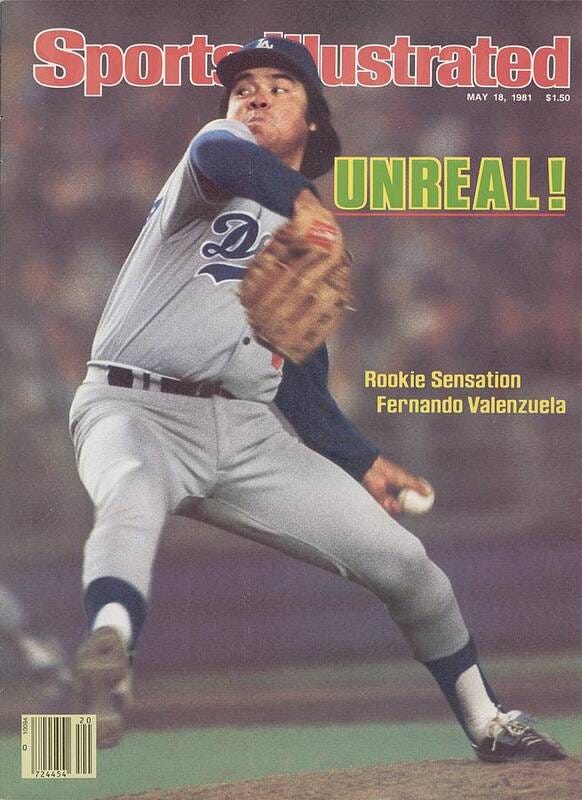Fernando Valenzuela: the man, the mania
Where were you in 1981 when this classic baseball icon took over the sport?
It was not exactly a Lou Gehrig/Wally Pipp situation, but when Jerry Reuss was unable to start on opening day, 1981 for the LA Dodgers, this kid from Mexico stepped in. And the baseball world changed. This is the “tough outs” story of Fernando Valenzuela, courtesy of Classic Baseball World staff writer Julien Price. - RI
It started with a pitch, a screwball that danced wildly, confusing hitters and enthralling fans. This throw carried Fernando Valenzuela from Mexico's rural landscapes to Major League Baseball's crowded stadiums. His story exemplifies resilience, ethnic pride, and the power of athletics to bring communities together.
Valenzuela was born on November 1, 1960, in the little community of Etchohuaquila, Mexico, as the youngest of twelve children. Growing up in a modest home with dirt floors, his early life was characterized by hard work and strong family ties. Baseball provided an escape, played on dusty fields with makeshift equipment. Even as a teenager, his left arm demonstrated a distinct ability, particularly with a screwball that baffled local batters.
Opportunities for professional baseball were limited in his area. Valenzuela's journey was fraught with uncertainty, beginning with local teams and eventually leading to the Mexican Central League's Guanajuato Tuzos in 1978. Scouts were impressed by his performance, paving the way for his rise to the professional levels.
The Los Angeles Dodgers purchased Valenzuela's contract in 1979, bringing the 19-year-old pitcher to the United States. The shift was difficult; he spoke little English and experienced cultural isolation. Some questioned his ability to succeed in Major League Baseball due to his unorthodox windup and reliance on the screwball.
Despite these challenges, Valenzuela's ability was evident. He made his Major League Baseball debut late in 1980, pitching 17.2 scoreless innings in relief. This outstanding accomplishment paved the way for a memorable 1981 season.
Fernando-mania
Valenzuela took over as the Opening Day starter for the 1981 season after Jerry Reuss was injured. He took advantage of the opportunity, tossing a complete-game shutout against the Houston Astros. This performance sparked "Fernandomania," a cultural phenomenon in which fans, particularly those from the Latino community, packed stadiums to see him pitch.
Valenzuela's debut season was remarkable. He won his first eight outings, including five shutouts, and had an ERA of 0.50. By the end of the season, he led the league with 180 strikeouts and eight shutouts, receiving both the National League Rookie of the Year and the Cy Young Award. The only player to accomplish both in the same season. His talents were crucial in bringing the Dodgers to a World Series win in 1981.
Valenzuela had a 141-116 win-loss record, a 3.31 ERA, six All-Star appearances, and a no-hitter against the St. Louis Cardinals on June 29, 1990.
Valenzuela transitioned to broadcasting when his playing career ended in 1997, becoming a popular Spanish-language commentator for the Dodgers. His voice resonated with fans, bridging cultural divides and keeping the Latino population involved in the sport.
Beyond the booth, Valenzuela was passionate about developing future talent in Mexico. He mentored prospective players and lobbied for deeper relations between the MLB and Mexican baseball leagues, ensuring that future generations received the opportunity he lacked. In 2023, the Dodgers retired Valenzuela's iconic number 34 to acknowledge his enormous impact on the team and the sport.
Fernando Valenzuela died on October 22, 2024, at the age of 63. His impact goes beyond his on-field accomplishments; he is a symbol of hope, resilience, and unity to athletes across the globe.


